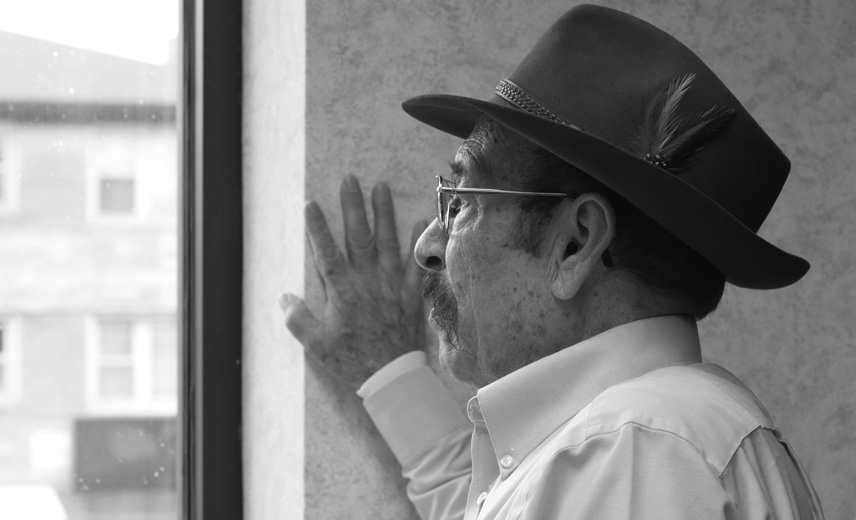STUDENT MENTAL HEALTH: COVID-19, The Protests, and the Struggle to Remain Resilient

By Anais Lopez, an UnidosUS Líderes Avanzando Through College Fellow
In March, millions of college students packed up their belongings and returned to their hometowns to finish the year remotely. As if college students don’t already face immense amounts of stress and pressure to succeed, the sudden transition from in-person to online learning has had grave effects on the mental health of some students.And in late, May our country erupted into nationwide protests over the never ending cycle of racism and injustice against Black lives. In the midst of these issues, many students, including myself, struggled to focus on our spring finals.
May was also Mental Health Awareness Month, and some of us have been so busy dealing with the issues surrounding it that we couldn’t find the space to really reflect on it, at least in writing. But it’s never too late to start. Right now, this week, this month, it’s important that we look at the struggles students have been facing and consider the steps needed to help them.
Over the past year, I have been part of the UnidosUS Líderes Avanzando Through College fellowship, learning how I can advocate for the things I care about, like an expansion of college mental health services. This program has taken me across my campus at UCLA and all the way across the country to the U.S. Capitol to conduct research and to discuss the subject with elected officials. But the unexpected quarantine has forced me to consider new ways of advocating and made me dig deeper into how that quarantine could be impacting student mental health, especially for those with more clinical issues.
As a Latina woman in higher education, it was hard to express issues of mental health with my family and with others. As I have grown, learned, and experienced worsening mental health myself, I have been forced to come to terms with the realities and pervasiveness of mental health issues on college campuses. Additionally, I have seen firsthand the impact culture and societal norms can have on a person’s perception of their mental health.
During this pandemic, I started to notice my own increased anxiety and depression and found myself at a loss for how to deal with it. Knowing I was not alone in this, I wanted to see how mental health was impacting others. I asked several students from UCLA if they would speak on the basis of anonymity about how COVID-19 had impacted their mental health. This is what they had to say:
“The quarantine mandated by this pandemic has made it more difficult to stay motivated. I find myself needing to put in more effort to complete tasks that I normally completed easily or that I really enjoyed. Activities ranging from going on a run in the morning or calling my grandparents now require much more mental effort. My emotional health feels like it went from being a hummingbird to an aging sloth. I am tired more often than usual, and I’ve been listening to anxiety meditations on a daily basis as a form of therapy.” -Anonymous, UCLA class of 2020
“I am a first-generation Latina, and graduation was going to be a huge moment for my family as they have never been to a college graduation in the United States. Unfortunately, it won’t happen. Although I’m blessed to be safe, I feel that my hard work at UCLA went unnoticed and I am not excited about graduating anymore.” -Anonymous, UCLA class of 2020
“COVID-19 took everything from me. My second home, sports, my job, my friends. I felt as if I had lost everything.” -Anonymous, Oregon State University class of 2023
“COVID-19 has increased my anxiety, panic attacks, and PTSD, as I feel unsafe and I am constantly on survival mode. It’s brought back traumatic moments in my life where I have felt unsafe due to economic instability and a history of sexual assault.” -Anonymous, UCLA class of 2020
According to a study published by Psychiatry Online, 34% of college students receive mental health treatment and therapy while 36% have lifetime diagnoses of mental health conditions. A 2019 study from Pennsylvania State Universityrevealed that demand for mental health services spiked by 30-40% while enrollment increased by merely 5%. In response to these increases, universities began allocating more funding for mental health services and programs, leading to an increase in everything from therapy sessions to wellness yoga classes. But these services have been largely out of reach during the pandemic.
To make matters worse, many students are finding that they’re food insecure in their own homes or the places where they’ve taken refuge. According to data from the College and University Food Bank (CUFA) presented a year before the pandemic, an estimated 30% of college students were food insecure, and that’s with many campuses offering some sort of nutritional assistance.
Additionally, an estimated 48% of students at four-year institutions have noted they have faced some sort of housing insecurity, the bank’s data shows. Still others view college and the dorms as a refuge from home issues. Whether it is abuse or simply hard living conditions, campus provided a sense of normalcy and protection. Now, they may be trying to focus on classes while living in dangerous or complex conditions, that may also include unreliable internet services and a lack of quiet study spaces.
Students are left experiencing an overwhelming sense of loss for what would have been. That’s especially true of graduating seniors who won’t get to celebrate an in-person commencement. As a senior myself, I hurt with the knowledge that a moment, a string of events, and a lifetime of memories will not happen. I am stuck with the contradiction of feeling my pain and simultaneously feeling guilty while there are, in fact, much bigger problems in the world.
This week has also shifted the world as four major instances of anti-Blackness, including the murder of George Floyd, prompted national and worldwide protest. As people of color in this country unite against police brutality, the whole world is being forced to reckon with injustices people of color face. For students in the UCLA community, the reality of attempting to focus on finals and schoolwork while processing the daily news has caused yet another layer of stress. In fact, many of us are trying to do so with helicopters circling over our heads and sirens blaring through our neighborhoods, all while grappling with the decision to break quarantine and go out and join the masses on the frontlines of a protest.
As states slowly reopen and mass protests continue to grow, will there be a second and even bigger wave of the virus? Many scientists think so. Will the protests continue? How will law enforcement respond? How do we deal showing up amid the risk of spreading or contracting the virus? How will we process the numerous lives lost to sickness and brutality? And then, what about that looming economic disaster? Will life be “normal” ever again?
There is much uncertainty in what is to come. I believe we must work to ensure that students are given access to resources to help with their mental health and ensure that their well-being is a priority when assigning work and grades. We must be aware of how these outside forces can impact students’ capacity to learn. Here are just a few ways I continue to advocate within my own university and with elected officials, even from my house.
- I continue to work on my Líderes Avanzando policy memo to ask Congress to implement more culturally relevant therapy by amending H.R 5204, the Students Mental Health Rights Act.
- As a previous Resident Assistant at UCLA, I continue to check in with past residents to assure them that they continue to have to whom they can express their deepest concerns. I seek to continue the conversation on mental health in my friend and peer circles by utilizing social media to promote self-help and self-care tips.





